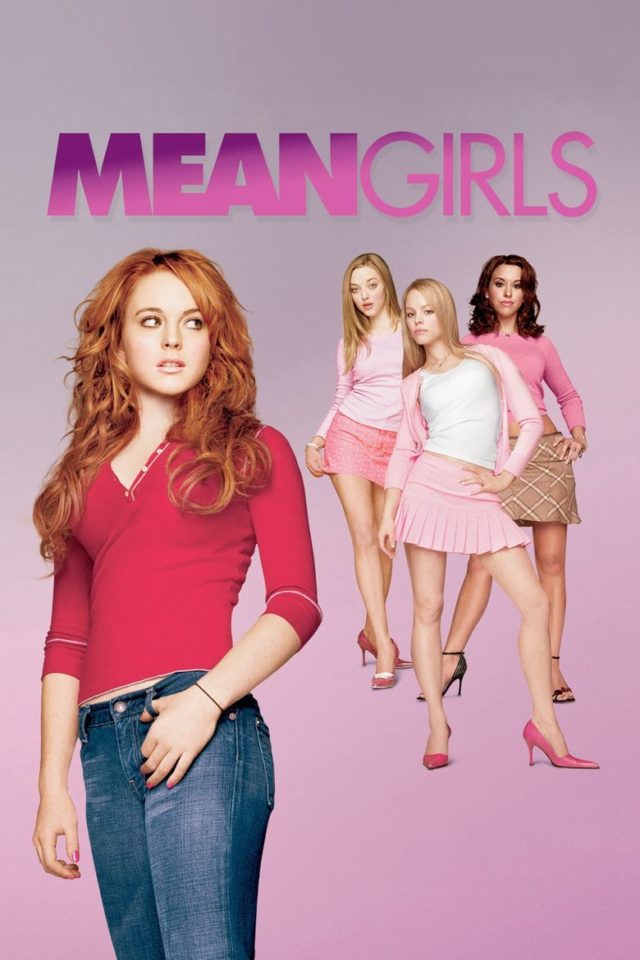Thomas Moran | Arts and Life Editor
What differentiates a cult film from the countless other movies released from Hollywood every year? Why do these movies stand the test of time and, more importantly, maintain fervent multi-generational followers? In this series, Cult Film Crash Course, I’ll attempt to answer these questions about cult film qualities and more.
If you haven’t seen it, you’ve probably heard of it. If you haven’t heard of it, you’ve probably heard it quoted. “On Wednesdays we wear pink.” “You go, Glen Coco!” “That is so fetch.” “Get in, loser. We’re going shopping.” These quotes and countless more have earned the 2004 hit film “Mean Girls” a spot in the cult film category. So how did a cheesy film about high school drama develop a lasting following? The film, while undeniably hilarious, hasn’t remained relevant and popular strictly through wit and humor. The defining characteristic that sets “Mean Girls” apart is the way in which the film captures very real and present high school dynamics, while portraying them in an absurd way that audiences can laugh at.
For those who haven’t seen the film, “Mean Girls” follows the story of Cady Heron, played by Lindsay Lohan, a 16-year-old girl who recently moved back to the United States after living in Africa with her zoologist parents for 12 years. The transition to public school is difficult for Cady, but she quickly finds friendship with two social outcasts named Janis and Damien, played by Lizzy Caplan and Daniel Fanzese. The two teach Cady about all of the social cliques at school, one of which is “The Plastics,” the three most popular girls in school, led by Regina George, played by Rachel McAdams. Despite finding friendship with Janis and Damien, Cady finds herself being accepted and socially adopted by Regina and her two minions. Janis, who has a negative history with Regina, wants to seek revenge on Regina using Cady as her insider pawn. Cady, Damien and Janis devise plans to sabotage Regina in various ways. Eventually, Cady loses sight of Janis’ goals and fully assimilates into The Plastics leading to a falling out with both of her friend groups.
“Mean Girls” addresses many of the social issues that are highly present in high school and even college today. Although many social movements have worked toward the condemnation of bullying and leveling of the social playing field, it’s not uncommon for schools to have evident social hierarchies. Whether through extracurricular activities or physical attraction, some individuals find a way to higher social standing, while some just try not to become complete outsiders. “Mean Girls” addresses this issue by creating a scenario that is equal parts hilarious and unlikely — a social outcast is invited into the most popular clique in a high school. Viewers are able to see the absurdity of certain social hierarchies that are often based on superficiality, and it highlights the meaninglessness of social status.
Another element of the film that has sustained its relevance is the way the film blurs the lines between villain and hero. Early in the film, it seems that Cady will be the protagonist and Regina the antagonist. However, before the movie is over, viewers are invited into the understanding that it’s difficult to be young and searching for yourself. Social pressure and fear of being forgotten can push a student to do and say heinous things like Regina. On the flip side, newly found popularity and a desire for popularity can push a person to forget their roots and completely change their identity, like in Cady’s situation. By the end of the film, it’s clear that neither Regina nor Cady is the villain. Rather, worthless social pressures and unkindness are the true villains in any high school environment.
Finally, “Mean Girls” avoids many of the outlandish endings that other films in the high school drama genre often adhere to. At the end of the movie, there is a redemptive moment during which many of the toxic cross-clique relationships are reconciled. But, there are still cliques and there are still social hierarchies. They’re just a little more peaceful.
While the film’s successful portrayal of challenging social dynamics might have solidified the films candidacy for a cult film following, it was the movie’s humor that won it the title. Few people can watch Cady fall head first into a trashcan without laughing, or hearing Damien shout, “She doesn’t even go here!” without cracking a smirk. Comedian and writer of “Mean Girls” Tina Fey hit the nail on the head with every joke.
All in all, the film addresses very real issues and social dynamics in a way that millennial and younger generations can relate to. With its colossal following, it doesn’t seem like “Mean Girls” will be forgotten any time soon, earning the film the well-deserved title of cult film.



